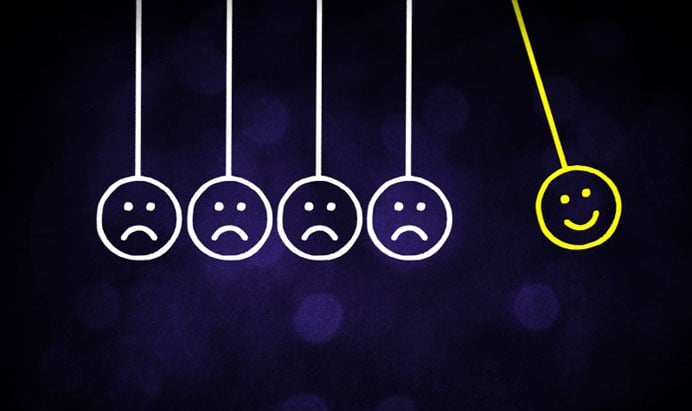
Why shame a therapist who needs to go to another therapist for help

There are two popular assumptions about psychotherapists: either they are the sanest creatures on earth who know the secret to a perfectly happy life, or they are ‘psycho.’ A fresh graduate in Psychology, I often get spoken about in these terms. And, I must say, I’ve to deal with it.
People often ask me how do I manage to stay calm -- which I don’t think I do, actually -- and they would ultimately link my seemingly tranquil nature with my academic degree the minute they come to know about it. I understand where they are coming from, but I don’t react.
I have my bad hair days. On one such day, I finally decided to seek ‘psychological’ help. The first thing that my therapist told me as he glanced through my medical history was, "It’s a shame that you should be here; you’re a psychology grad, after all. I wonder what did they teach you in college?"
It is ironic how the social stigma(!) around seeking therapy should actually be worse for the person who studied to be a therapist himself.
What is more infuriating is that the notion that psychotherapists are immune to emotional distress and anxiety is endorsed within the professional circle also. This can be damaging for the professional community as well as the clients.
I inquired a few friends who practise clinical psychology, whether they ever took or felt the need to take therapy. I must say I wasn’t surprised to learn that at one point of time or the other they all had faced burnout from dealing with their clients’ emotional stress (which is also known to lead to desensitisation). I know there are times where their personal problems make it difficult for them to maintain the same professional status, yet they are most unlikely to seek therapy for themselves.
Although many of them agreed that it’s important to manage burnout and maintain self-care, the resources, the workload, and the daily grind didn’t always permit them that ‘luxury.’
Some of them also spoke of a fear that they might be portrayed as "weak." "How are you going to treat others when you are deemed mad because your client came to know that you had been to a therapist?" asks a psychologist, not wanting to be named. "How would your client come to trust you in such a situation?"
Remarks from your family and friends can be even more insensitive. "Psychology parh parh kay khud psycho ho gaee ho," (reading psychology has turned you into a psychotic person) says my brother to me.
This might not be as simple as they think it is. Even in categorically different realities, we all suffer loss and grief; we all have our past bogging us down, and the uncertainty of future worrying us. Suffering is natural and not unique to a particular kind of individual or group.
Although the vulnerability to ask for help isn’t much appreciated in this field, what needs to be understood is that the therapists and students of psychology can and should also undergo therapy in the difficult phases in their lives, despite their ability to identify and trace unhealthy behavioral and thought patterns, and the knowledge about coping.
Acknowledging pain doesn’t make them any less qualified for their job; in fact, it only increases their empathy towards the patient. Which reminds me of Carl Jung’s idea of the "wounded healer;" it’s about the psychoanalyst who has been through the pain, knowing and being able to understand his client’s suffering.
As much as it is important for a therapist’s personal growth to seek professional help, it also positively affects their clinical practice: they are better able to get a hold on their emotional reactions towards their clients, and they can also more easily understand what it feels like to be sitting in the chair on the other side of the therapist’s table. It allows them to have a first-hand experience of clinical procedures and how it would appear to their clients.
The important question to ask ourselves here is that being therapists what message are we giving out to others. Since we try to heal others, we can never discount sitting in for a therapy session, can we? No one in need is above therapy.